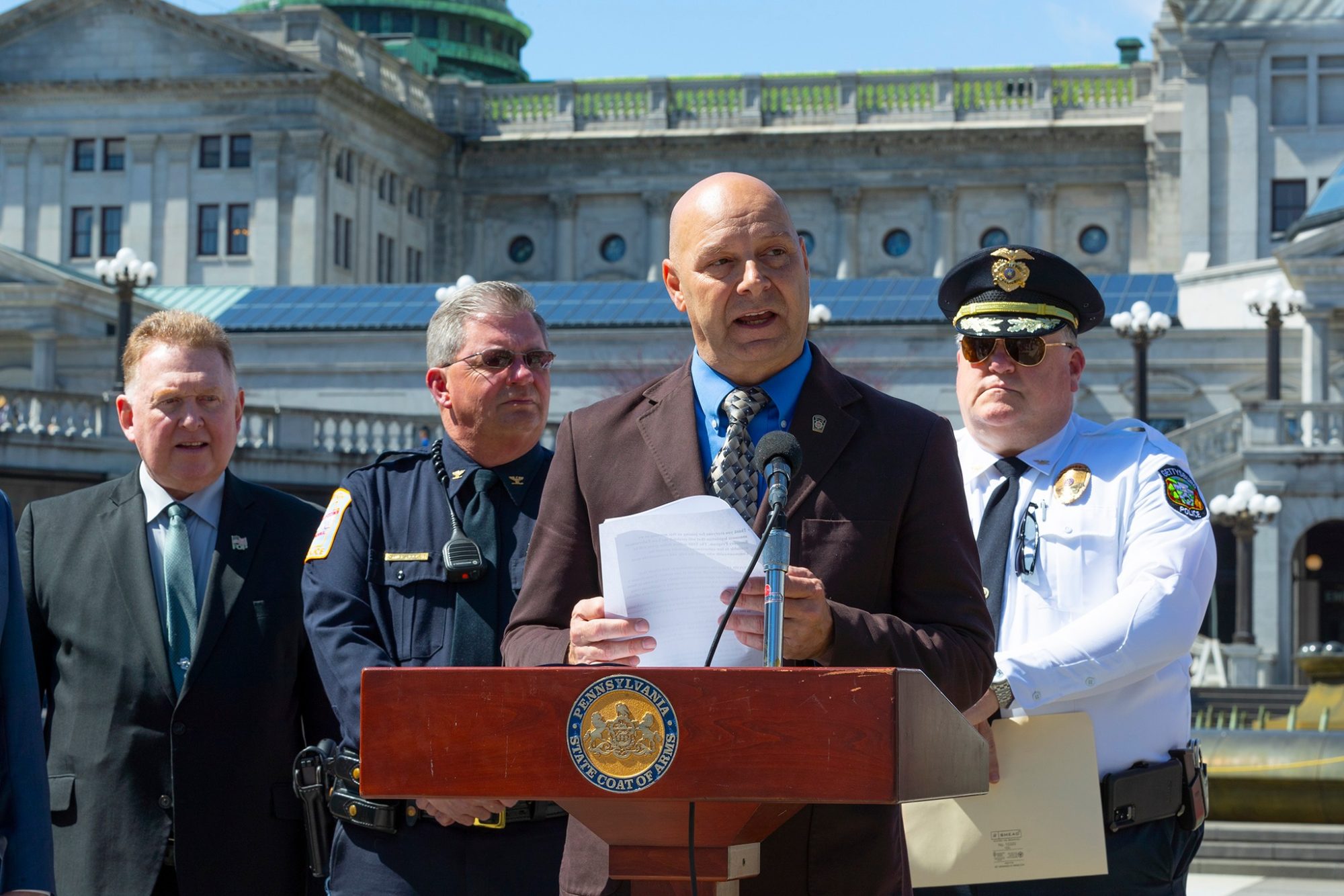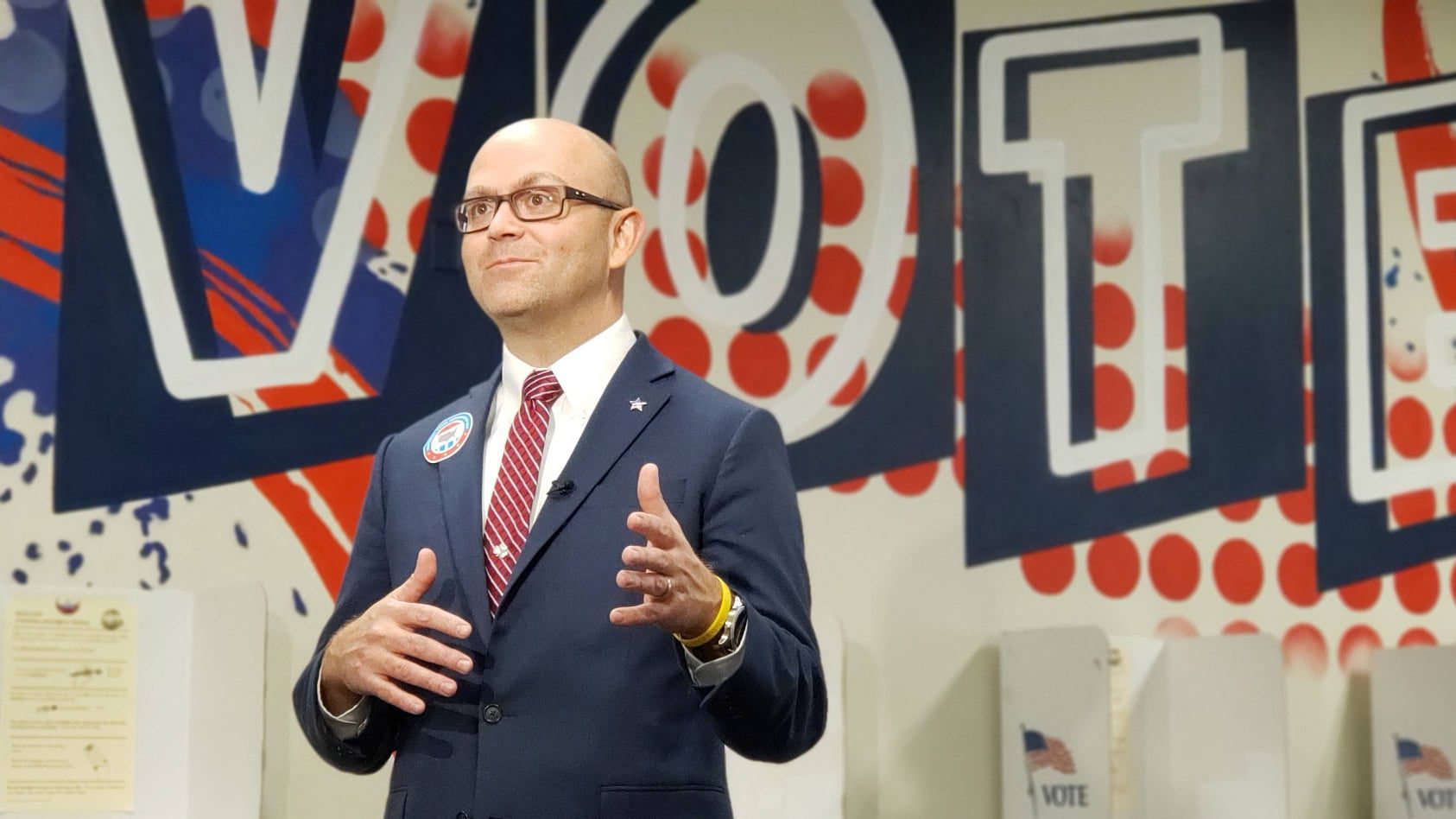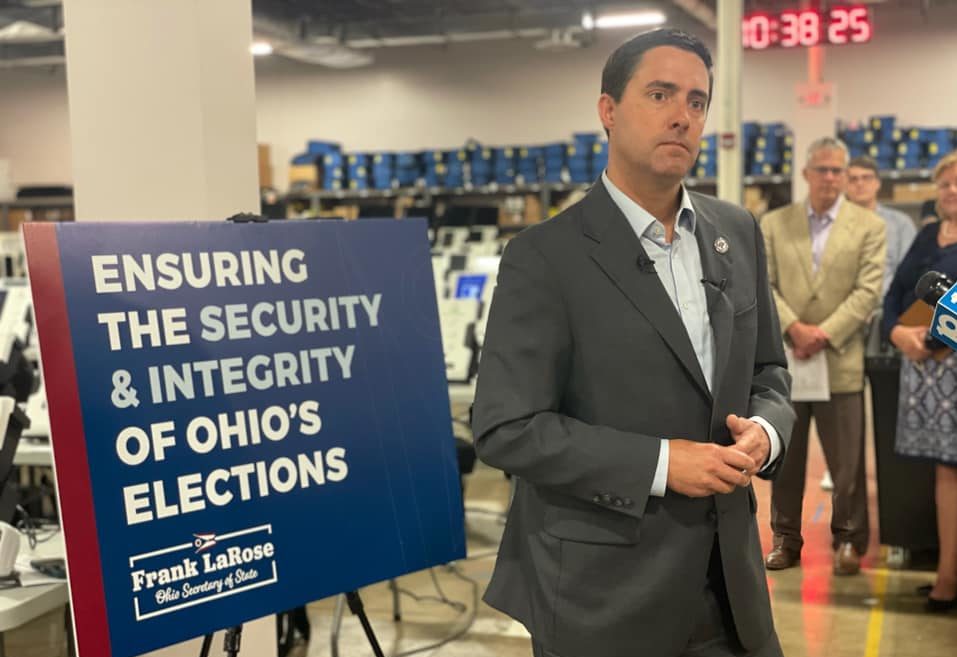Vermont Secretary of State Candidate Looks to Expand Ballot Access, but First She Faces an Election Denier
Bolts talks to Sarah Copeland Hanzas about voting rights and registration in Vermont, a state that is pushing the boundaries of who is eligible to vote.
Daniel Nichanian | September 7, 2022
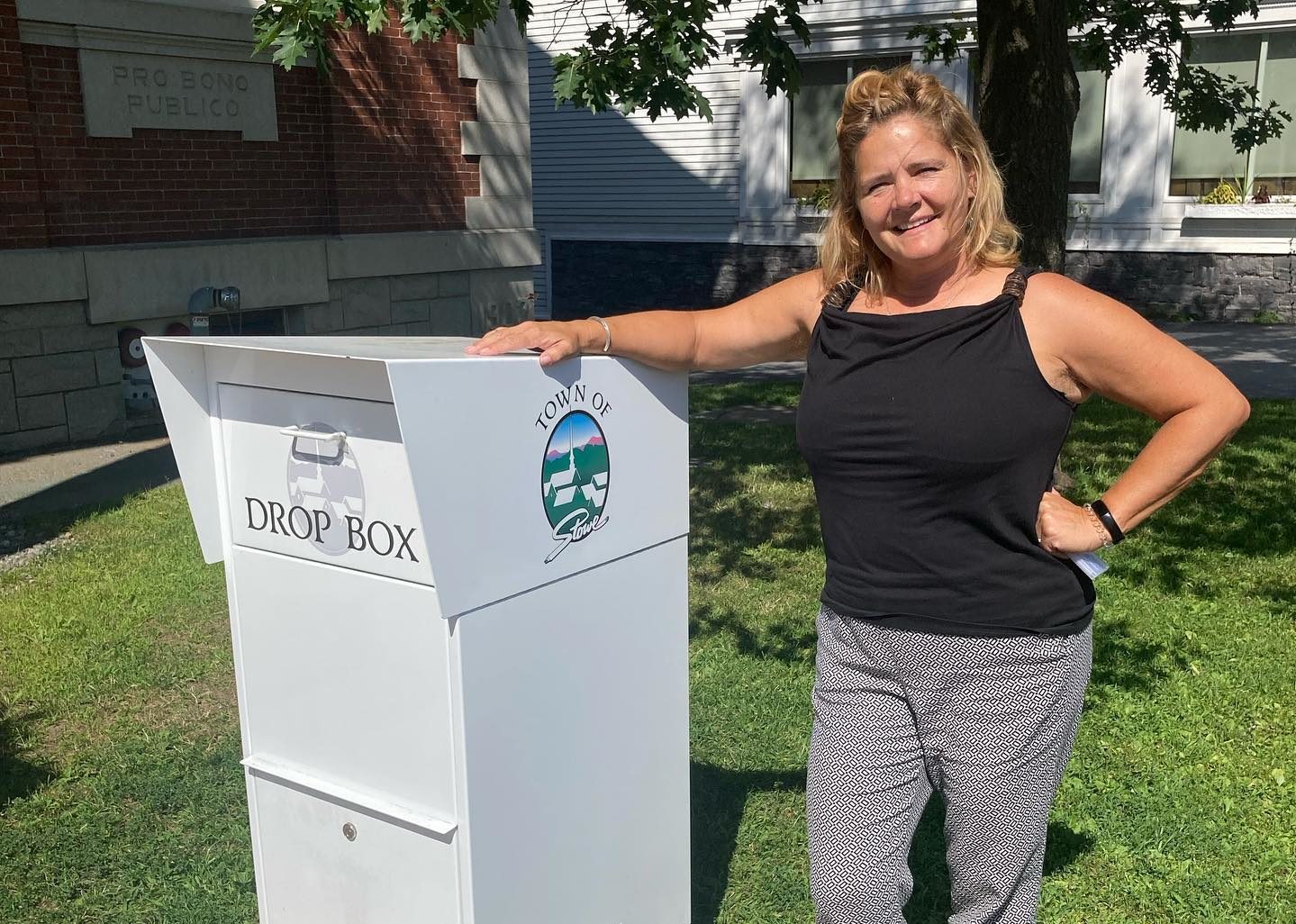

Sarah Copeland Hanzas, the Democratic nominee for secretary of state in Vermont, has an obvious enthusiasm for ballot drop boxes. On social media, she shares pictures featuring her posing next to them all around the state, from Jericho and Randolph to Moretown and St. Albans.
Her attitude stands in stark contrast with the debunked conspiracies spread by Donald Trump’s allies demonizing ballot drop boxes and mail voting as the source of widespread fraud. Those conspiracies will feature in the general election to be Vermont’s chief elections officer. The state may lean hard to the left in federal elections, but Republican nominee H. Brooke Paige has echoed the former president’s lies that the 2020 presidential election was stolen; he is part of a large network of Republican election deniers running for secretary of state.
Bolts recently spoke with Copeland Hanzas about her concerns over this rhetoric and about how she envisions the role of a secretary of state when it comes to championing ballot access.
Vermont is in the midst of major debates regarding how to strengthen democratic participation. Copeland Hanzas, who has served in the state House since 2004, helped shepherd the state’s new universal vote-by-mail system into law this year; she also supports towns in Vermont that want to expand their electorate by allowing noncitizen residents and 16- and 17-year olds to vote in local elections. (Two Vermont municipalities, including the capital city of Montpellier, just implemented noncitizen voting in local elections this year.)
Bolts also talked to Copeland Hanzas about how she would expand voter registration, including for people who are in prison. Vermont is one of just three places in the United States, alongside Maine and Washington, D.C., where no incarcerated person loses the right to vote, though turnout rates from prison are low. “Why would they not be allowed to vote? They’re citizens of our country,” Copeland Hanzas told Bolts.
You are running against a Republican opponent who has amplified Donald Trump’s lies about the 2020 election. What concerns do you have about an election denier in this office?
It is highly worrisome to hear people echoing false claims and misinformation about the safety and security of our elections. It is a fundamental threat to our democracy, in that the purpose of these claims is to discourage people from participating in elections. And I think that is very undemocratic.
We’ve seen rising threats and harassment of local election officials. Are you concerned about that taking place in Vermont?
It’s certainly a concern. I haven’t been briefed in any formal way about the extent to which there may be actual threats, but I do hear anecdotally, talking with local elections officials, that the tension and stress around elections has definitely increased because of this misinformation.
In Vermont, that is a really serious allegation: What you’re essentially saying is that your neighbor, who is duly elected to be the local elections official, is somehow part of a broad scheme to defraud the electorate. It’s just offensive and preposterous, and it is disheartening for people who care so deeply about democracy and local government that they have made their career out of acting as a town clerk.
Vermont Digger called the three-way Democratic primary in August a race between “a technocrat, an activist, and a lawmaker.” You, the lawmaker, won. How do you envision the role of secretary of state, and do you hope to approach it more with the mindset of a voting rights “activist” or an elections “technocrat”?
The role of the office is to be the defender of democracy. When I look at defending democracy, I think Vermonters need education on how to navigate within the system: How do you in fact influence your elected officials? If we don’t help people learn how to operate within a democracy and have faith in their ability to influence their leaders, and in the ability of governments to uphold the safety and security of elections, then we’re not going to live in a democracy long.
Civics is boring if all you’re learning about is, ‘Here are the three branches of government, here’s the federal system.’ But people do get interested when you talk about it from the standpoint of, ‘Here’s an issue that you are passionate about—maybe you feel like you’ve been wronged—and here’s how you can advocate for a change in the system to right that wrong.’ In Vermont, you have the ability to protest your local government, participate in town meetings and lower the budget; you can vote to raise the budget, you can vote to strike the line items that suggest we should spend a million dollars on a new fire engine. I’m not going to pretend that every Vermonter knows how to participate in town meetings; the reality is a very small percentage of Vermonters actually go to their town meetings. But it is an example of democracy and action that we can point to; and when people understand that that’s possible at the local level, then it’s easier to help people engage in the idea of advocating at the statewide level.
Vermont is among just a few places that allow people to vote from prison. Nobody in Vermont is stripped of the right to vote when convicted of a crime. What do you think of that approach?
I absolutely support it. The right to vote is fundamental to your rights of citizenship, and so Vermonters need to have that protected and respected. And so I certainly support folks who are incarcerated being able to participate in our democracy. Why would they not be allowed to vote? They’re citizens of our country.
Turnout is reportedly low among incarcerated people. What if anything would you do to address that?
Absolutely. I would refer back to two of my campaign priorities and would look for ways to make them available to incarcerated individuals.The first priority is education and outreach on civics. We need to extend that outreach to incarcerated individuals as well, so that folks understand how to vote. And my second priority is that the secretary of state’s office needs to be creating and publishing a voter guide in advance of the general election: contact information for the candidates, their website—and we could add to that a 100-word statement. That information needs to be made available to Vermonters so they can find the candidate whose values match their own, and that absolutely needs to be extended to incarcerated individuals. If you’re in prison, and you are reliant on whatever media sources you have access to, it’s no wonder people don’t vote. The secretary of state’s office needs to take a more proactive approach in making that information available.
Vermont has adopted automatic voter registration, which is triggered when people interact with the Department of Motor Vehicles (DMV). Would you support extending automatic voter registration to Vermont’s Department of Corrections as a way to increase participation among incarcerated people?
It’s certainly something that I would want to look into. We [lawmakers] directed the secretary of state’s office to collaborate with various state agencies outside of the Department of Motor Vehicles to explore the extent to which automatic voter registration might be simple and easy to extend to their systems. And I could see doing that with the Department of Corrections.
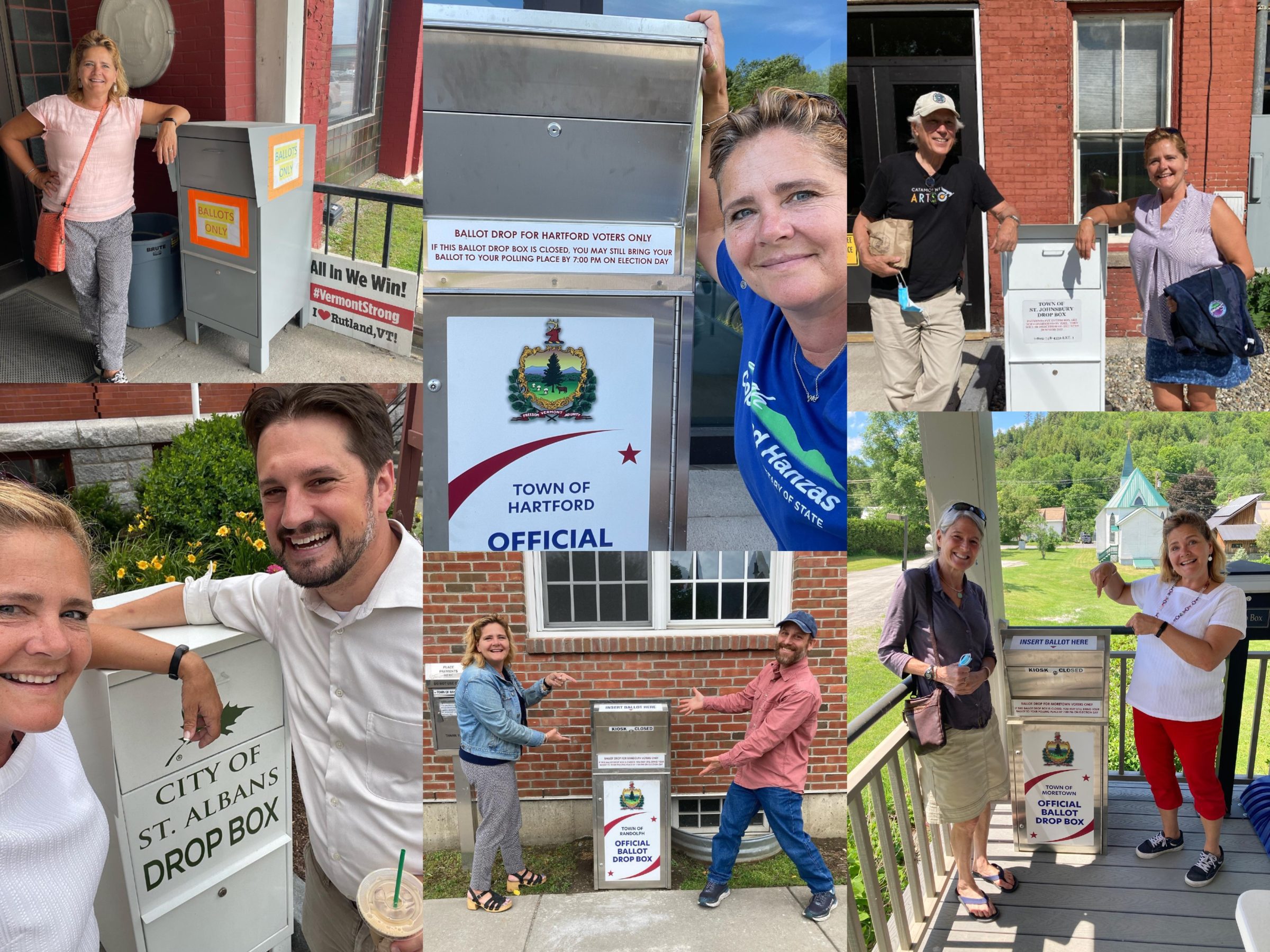

What other public agencies would you want to extend automatic voter registration to? There are various efforts to make the state’s Medicaid office a participating agency as well.
We started that conversation several years ago with our Medicaid office. At the time, the Medicaid office asked us not to mandate that they go forward with it immediately; instead, they asked if they could work collaboratively with the secretary of state’s office and figure out the best way to implement that. I haven’t gotten an update. During the pandemic, there were so many challenges that we as lawmakers were having to unravel that extending AVR fell off of my radar. But it’s something that I will ask in the upcoming transition if I’m elected. I would like to know what are the barriers, and see if we can eliminate them and get this done for Vermonters.
People who don’t ever intend to have a driver’s license should still be registered to vote so that they can be participating in democracy.
Two Vermont towns are set to allow noncitizen residents to vote in local elections this year. Why did you support these towns’ change when they came up in the legislature?
Yes, I absolutely supported that. I was chair of the Government Operations Committee when those charter changes from two municipalities came to our committee. I was surprised at first, but as we explored with constitutional scholars and historians, we realized that there is in fact precedent in Vermont history for noncitizen residents to be able to participate in an election, and that there is no prohibition against a community wanting to allow noncitizens to vote in their own municipal elections. We heard from these communities about why they thought it was important to be able to welcome people into the democratic franchise at the local level, sometimes as a transition or step to full citizenship, and other times as a recognition that somebody who is a resident is a longtime participant in the community.
There’s also the debate over the voting age, with one Vermont town trying this year to lower it to 16 in local elections. Do you support such efforts?
We considered that proposal from Brattleboro at the same time that we were considering the proposals on noncitizen voting. Brattleboro had an overwhelmingly supportive local vote to extend the franchise to 16 and 17 year olds, and we felt it was important to honor that wish. Unfortunately, the governor of Vermont, despite the House and Senate approval of the charter change, vetoed the bill, and we were unable to override the governor’s veto.
I certainly would support other communities pursuing this. I think it’s up to the local community, whether they feel that works for them. I think the advantages lie in helping people understand democracy: What a great way to have relevant school lessons then when young people are going to actually be able to go out and vote.
Vermont recently adopted universal vote-by-mail, a move you supported, which means that anyone who is registered gets a ballot. The right has fought mail voting. Why do you support expanding it?
That convenience factor for someone who is a single parent, or someone working two jobs, or someone who lives in one community but works in another. There are so many, many barriers to people being able to participate on Election Day. But the other thing is that, when you pick up a ballot on Election Day and you have three to five minutes with your ballot, it’s really hard to be able to figure out who you want to vote for. I think it really empowers people to be able to do a little bit more discerning of the candidates when they have the ability to do that at their kitchen table before the election.


